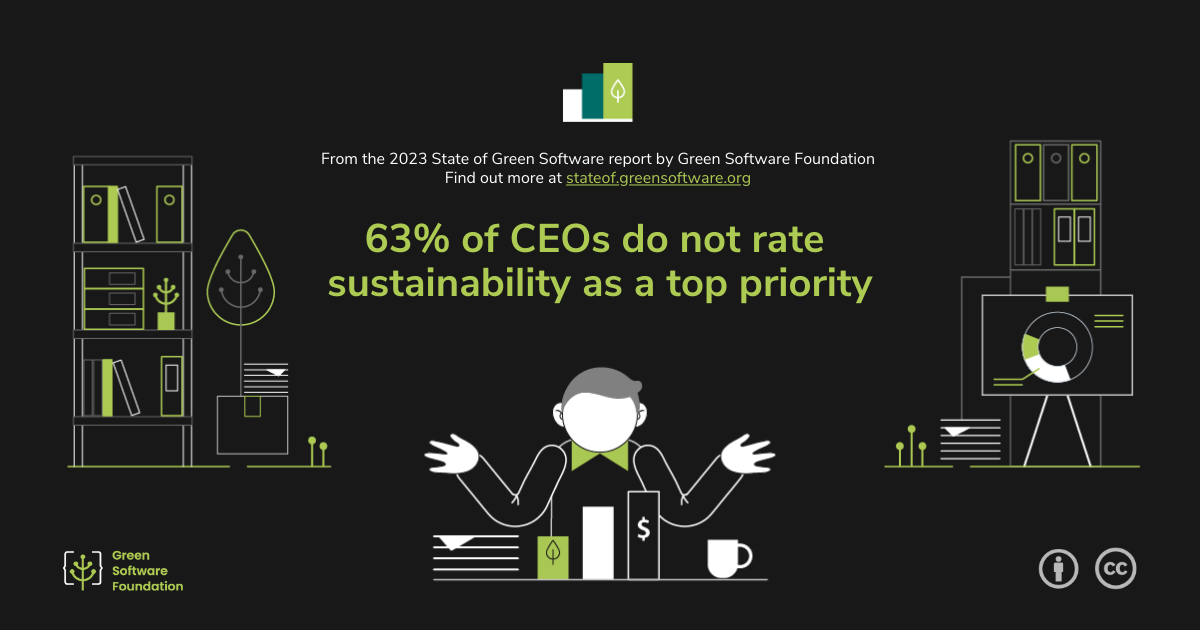According to a global survey of 3,000 CEOs conducted by IBM, 83% of CEOs view sustainability investments as a factor leading to improved business outcomes within the next 5 years. However, the same study suggests that only 37% of CEOs view sustainability as a top priority for their business; 63% do not. A survey by Gartner found that environmental sustainability has ranked alongside brand trust as a competitive differentiator for the first time, with 78% of CEOs finding that sustainability incentivizes investment. So, despite the growing signs that sustainability will be an important aspect of market competitiveness and investment going forward, a majority of CEOs are still failing to recognize the significance of sustainability measures.
When it comes to green software, CEOs have a particular focus on the following:
- Cloud sustainability
- Scopes 1-3 carbon footprint measurement
- Advanced grid management software
CEOs are concerned about the ROI of sustainability measures and the feasibility of implementing them, but growing consumer demand for green products may ease concerns over time. In 2021, the green software services market was valued at $12.46 billion. Forecasted to reach $34.83 billion by 2030, this projected growth reflects a broader societal trend in rising volumes of green products, which nearly quadrupled in the 20 years from 1995-2014, scaling from less than $400 billion to $1.5 trillion.
Results from a 2021 IBM survey showed that 50% of consumers were willing to pay more for a sustainable brand or sustainable products. A more recent poll surveying 16,000 consumers in 2022 found that 49% paid an average premium of 59% more for products branded as sustainable or socially responsible in the last 12 months.
In a further market survey by TechTarget, 95% of IT professionals said they believe their companies would pay an average premium of around 6% for products or services from an ESG-committed supplier.
As sustainability becomes more important to consumers, the gap between green purchasing preferences and actual buying behavior is decreasing. Indeed, the majority of respondents from IBM’s 2022 survey (51%) said environmental sustainability is more important to them today than it was 12 months ago.
Green software demand is poised to grow across all sectors, driven by consumer preferences, purchasing behavior, dollar value, or leadership investment.
